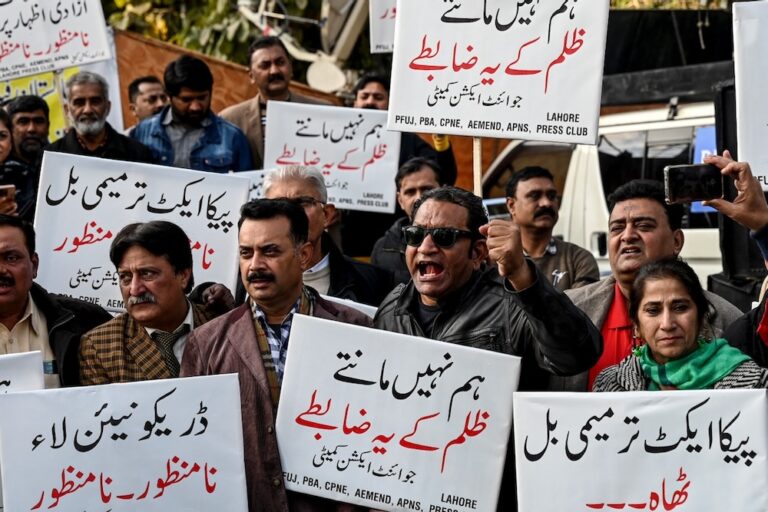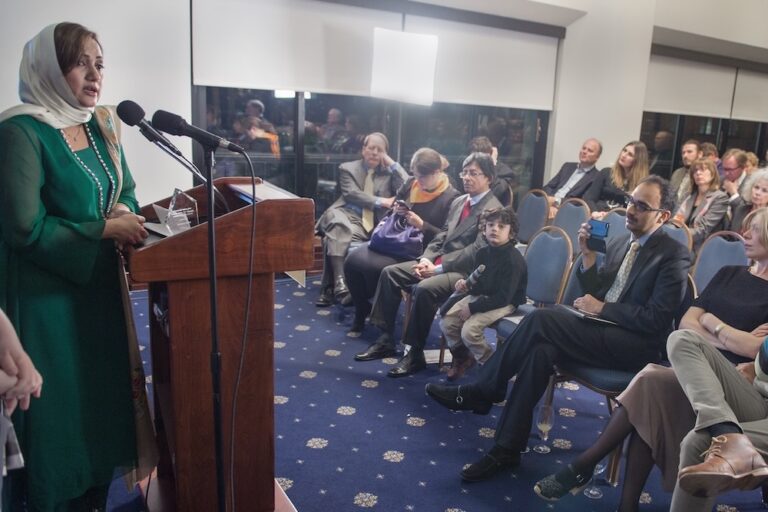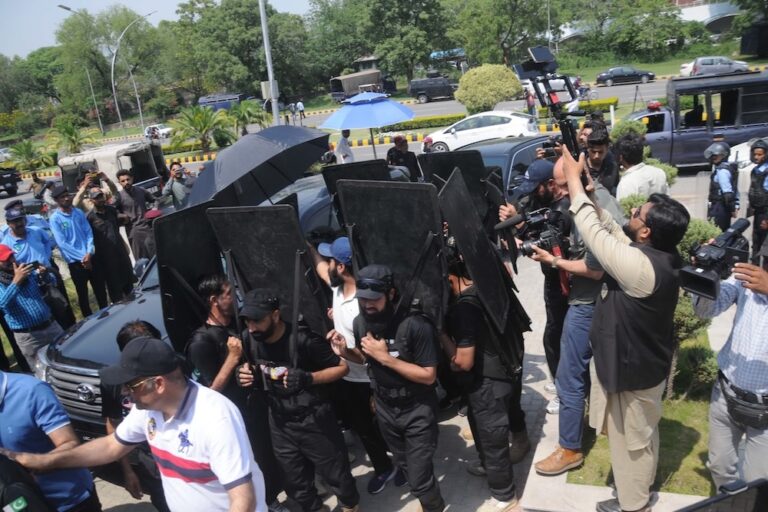(PPF/IFEX) – On 14 August 2001, the Pakistani government issued an ordinance under which printing, publishing or disseminating any material, or projecting any person convicted of a terrorist act or any banned organisation would be an offence punishable by up to six months’ imprisonment. However, the ordinance clarifies that “[a] factual news report made in […]
(PPF/IFEX) – On 14 August 2001, the Pakistani government issued an ordinance under which printing, publishing or disseminating any material, or projecting any person convicted of a terrorist act or any banned organisation would be an offence punishable by up to six months’ imprisonment. However, the ordinance clarifies that “[a] factual news report made in good faith shall not be construed to mean projection [of a person or organisation].”
The ordinance introduced amendments to anti-terrorism laws, empowering the government to ban any organisation involved in terrorism. Two militant sectarian organisations, the Lashkar-e-Jhangvi and Sipah-e-Muhammad, were banned the same day under the ordinance.
The day the ordinance was issued, the provincial government of the Punjab warned that legal action would be taken against publications which carry statements from, or made on behalf of the two banned sectarian organisations.
An official handout said that through the amended Terrorist Act 2001, the government had banned the publication, printing or dissemination of press statements, press conferences or public utterances by or on behalf of the two banned organisations.
Federal Interior Secretary Tasneem Noorani also said there would be a ban on issuing any statements by the leadership or about the activities of these banned groups, and they would not be allowed to be published in the press under the law. According to press reports, the interior secretary warned that anyone issuing a statement in support of these outfits could face legal action.


